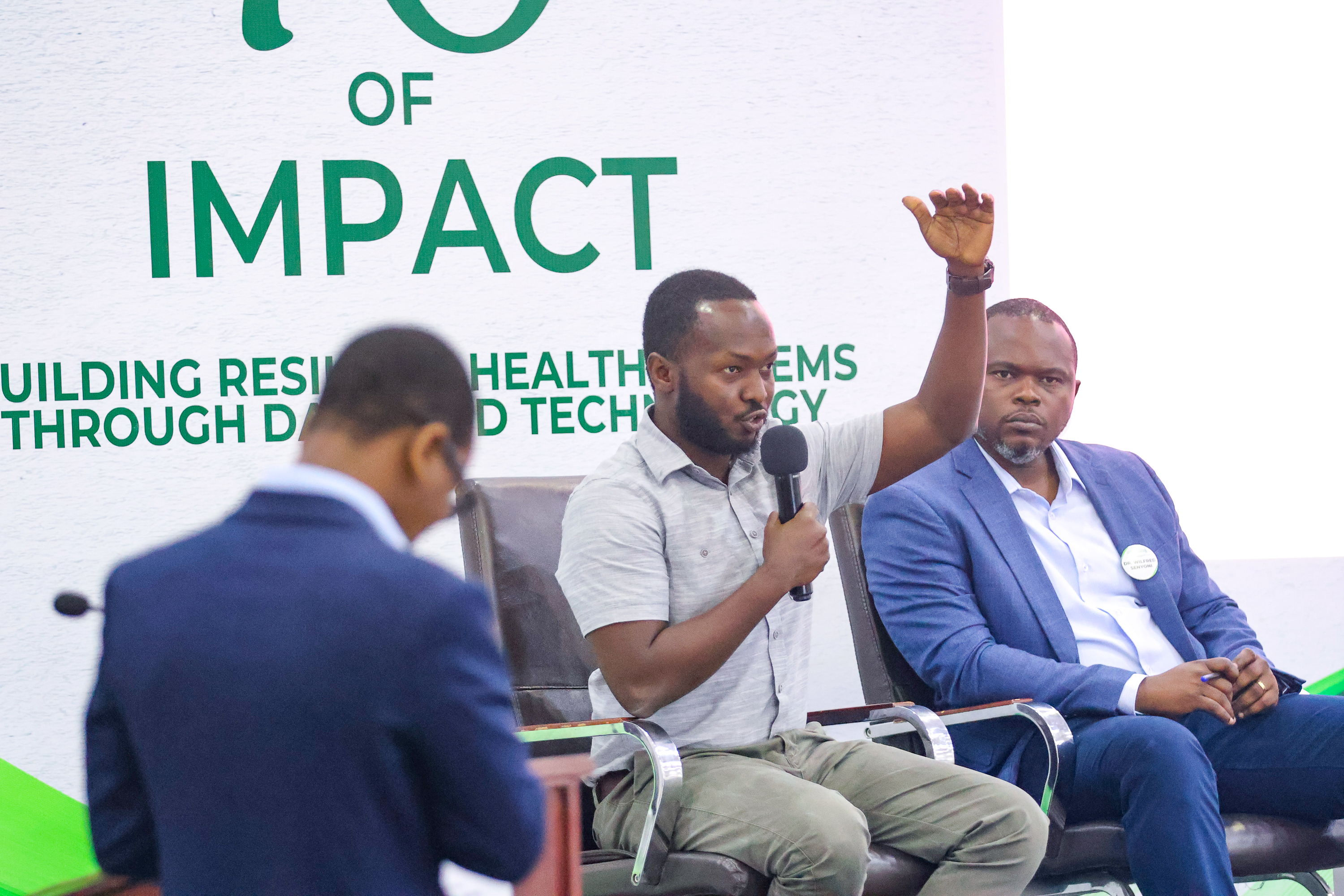
IASC2025: Smart data and local innovation for connected, equitable health systems

Day three – the final day – of the 4th Ifakara Annual Scientific Conference (IASC2025) placed the spotlight on smart data and locally driven innovation as catalysts for building resilient and equitable health systems in Africa.
Unlocking the Power of Connected Health
Dr. Wilfred Senyoni, Technical Lead at HISP Tanzania opened the day with a compelling vision for a smart, shared health data infrastructure in Africa. He underscored the transformative potential of connected data systems in driving equitable access, improving decision-making, and enhancing accountability in health. “The future of health lies in harnessing shared data responsibly, across borders, sectors, and communities,” he noted.
Building Smart, Shared Infrastructure for Health Data in Africa
A high-level panel featuring Dr. Senyoni, Charles Festo, Dr. Halfan Ngowo, Janice Maige, Daniel Mlabwa, and Dr. Sebantile Myeni unpacked practical steps toward this vision. Discussions explored governance frameworks, interoperability, and the importance of co-created systems that are not only technologically sound but also trusted by local communities.
The panelists emphasized that without addressing equity and inclusivity, even the most advanced digital infrastructure risks leaving people behind.
AI & Machine Learning in health research
Sessions highlighted the rapidly expanding applications of AI and machine learning in African health research—from disease modelling and diagnostics to risk prediction, image analysis, and health operations. Presenters also focused on explainable AI and the development of locally relevant algorithms, ensuring that machine learning reflects African contexts rather than imported models.
Genomics, surveillance and precision public health
The use of genomics and spatial surveillance was showcased as a powerful driver for precision public health. Scientists demonstrated how integrating vector genomics, human samples, and environmental data can guide targeted interventions, from controlling malaria vectors to designing tailored community health responses.
Cross-cutting innovation: Equity and local engagement
The theme of inclusive innovation was woven across sessions. Conversations on designing digital health for and with communities reinforced the importance of centering local voices in the development and rollout of technologies. Co-creation, equity, and trust emerged as non-negotiables for sustainable innovation.
Understanding and managing NCDs in the workplace
Dr. Sara Nyelo is set to lead a critical dialogue on the rising burden of non-communicable diseases such as hypertension and diabetes. The session is expected to highlight workplace wellness as a frontline defense, emphasizing the importance of early detection, preventive habits, and healthier work environments.
A new focus on knowledge and skills exchange
This year’s conference is different, placing a strong emphasis on knowledge and skills exchange, creating a dynamic space where early-career and senior scientists can learn from each other and share insights from their experiences.
As day three shapes up, it is becoming clear that Africa’s path to smarter, more equitable health systems will not be built solely on technology, but through local ownership, inclusive design, and connected infrastructure. The discussions are paving the way for a future where data and innovation serve not just as tools, but as bridges to healthier, more resilient communities.
Reflections: Data and technology must be used with care and purpose.
Over the past three days, the 4th Ifakara Annual Scientific Conference has sparked critical conversations on the future of health research and innovation in Africa. From discussions on equitable health systems and smart data to the role of AI and digital health, one message was clear: technology is here to stay—but it must be integrated carefully and strategically.
Dr. Grace Mhalu and Dr. Sam Kiware reminded us of the need to invest in local capacity so that African, and particularly Tanzanian, scientists can develop and own technologies that truly fit our context. The Director of Science emphasized the transformative shift from paper to paperless systems in clinical trials, underlining the importance of strong data quality and sharing frameworks before considering AI-driven simulations.
Dr. Nicodemus Govella noted that adoption of new tools must always be need-driven, while Dr. Honorati Masanja, reflected on the timeliness of this year’s theme in line with Tanzania’s Vision 2050. He stressed the urgency of building systems that can provide early warning and rapid response to health threats: “We might not be the health workforce, but we are the workforce that provides evidence early on so that appropriate measures can be taken.”
As we close IASC2025, these reflections serve as a call to action—to innovate responsibly, strengthen local capacity, and prepare for the health challenges of tomorrow.
